- Home
- Wilkie Collins
The Woman in White
The Woman in White Read online
The Woman in White
by
Wilkie Collins
CONTENTS
First Epoch
THE STORY BEGUN BY WALTER HARTRIGHT THE STORY CONTINUED BY VINCENT GILMORE THE STORY CONTINUED BY MARIAN HALCOMBE
Second Epoch
THE STORY CONTINUED BY MARIAN HALCOMBE. THE STORY CONTINUED BY FREDERICK FAIRLIE, ESQ. THE STORY CONTINUED BY ELIZA MICHELSON THE STORY CONTINUED IN SEVERAL NARRATIVES
THE NARRATIVE OF HESTER PINHORN THE NARRATIVE OF THE DOCTOR THE NARRATIVE OF JANE GOULD THE NARRATIVE OF THE TOMBSTONE THE NARRATIVE OF WALTER HARTRIGHT
Third Epoch
THE STORY CONTINUED BY WALTER HARTRIGHT. THE STORY CONTINUED BY MRS. CATHERICK THE STORY CONTINUED BY WALTER HARTRIGHT THE STORY CONTINUED BY ISIDOR, OTTAVIO, BALDASSARE FOSCO THE STORY CONCLUDED BY WALTER HARTRIGHT
THE STORY BEGUN BY WALTER HARTRIGHT
(of Clement's Inn, Teacher of Drawing)
This is the story of what a Woman's patience can endure, and what aMan's resolution can achieve.
If the machinery of the Law could be depended on to fathom every caseof suspicion, and to conduct every process of inquiry, with moderateassistance only from the lubricating influences of oil of gold, theevents which fill these pages might have claimed their share of thepublic attention in a Court of Justice.
But the Law is still, in certain inevitable cases, the pre-engagedservant of the long purse; and the story is left to be told, for thefirst time, in this place. As the Judge might once have heard it, sothe Reader shall hear it now. No circumstance of importance, from thebeginning to the end of the disclosure, shall be related on hearsayevidence. When the writer of these introductory lines (WalterHartright by name) happens to be more closely connected than otherswith the incidents to be recorded, he will describe them in his ownperson. When his experience fails, he will retire from the position ofnarrator; and his task will be continued, from the point at which hehas left it off, by other persons who can speak to the circumstancesunder notice from their own knowledge, just as clearly and positivelyas he has spoken before them.
Thus, the story here presented will be told by more than one pen, asthe story of an offence against the laws is told in Court by more thanone witness--with the same object, in both cases, to present the truthalways in its most direct and most intelligible aspect; and to tracethe course of one complete series of events, by making the persons whohave been most closely connected with them, at each successive stage,relate their own experience, word for word.
Let Walter Hartright, teacher of drawing, aged twenty-eight years, beheard first.
II
It was the last day of July. The long hot summer was drawing to aclose; and we, the weary pilgrims of the London pavement, werebeginning to think of the cloud-shadows on the corn-fields, and theautumn breezes on the sea-shore.
For my own poor part, the fading summer left me out of health, out ofspirits, and, if the truth must be told, out of money as well. Duringthe past year I had not managed my professional resources as carefullyas usual; and my extravagance now limited me to the prospect ofspending the autumn economically between my mother's cottage atHampstead and my own chambers in town.
The evening, I remember, was still and cloudy; the London air was atits heaviest; the distant hum of the street-traffic was at itsfaintest; the small pulse of the life within me, and the great heart ofthe city around me, seemed to be sinking in unison, languidly and morelanguidly, with the sinking sun. I roused myself from the book which Iwas dreaming over rather than reading, and left my chambers to meet thecool night air in the suburbs. It was one of the two evenings in everyweek which I was accustomed to spend with my mother and my sister. SoI turned my steps northward in the direction of Hampstead.
Events which I have yet to relate make it necessary to mention in thisplace that my father had been dead some years at the period of which Iam now writing; and that my sister Sarah and I were the sole survivorsof a family of five children. My father was a drawing-master beforeme. His exertions had made him highly successful in his profession;and his affectionate anxiety to provide for the future of those whowere dependent on his labours had impelled him, from the time of hismarriage, to devote to the insuring of his life a much larger portionof his income than most men consider it necessary to set aside for thatpurpose. Thanks to his admirable prudence and self-denial my motherand sister were left, after his death, as independent of the world asthey had been during his lifetime. I succeeded to his connection, andhad every reason to feel grateful for the prospect that awaited me atmy starting in life.
The quiet twilight was still trembling on the topmost ridges of theheath; and the view of London below me had sunk into a black gulf inthe shadow of the cloudy night, when I stood before the gate of mymother's cottage. I had hardly rung the bell before the house door wasopened violently; my worthy Italian friend, Professor Pesca, appearedin the servant's place; and darted out joyously to receive me, with ashrill foreign parody on an English cheer.
On his own account, and, I must be allowed to add, on mine also, theProfessor merits the honour of a formal introduction. Accident has madehim the starting-point of the strange family story which it is thepurpose of these pages to unfold.
I had first become acquainted with my Italian friend by meeting him atcertain great houses where he taught his own language and I taughtdrawing. All I then knew of the history of his life was, that he hadonce held a situation in the University of Padua; that he had leftItaly for political reasons (the nature of which he uniformly declinedto mention to any one); and that he had been for many years respectablyestablished in London as a teacher of languages.
Without being actually a dwarf--for he was perfectly well proportionedfrom head to foot--Pesca was, I think, the smallest human being I eversaw out of a show-room. Remarkable anywhere, by his personalappearance, he was still further distinguished among the rank and fileof mankind by the harmless eccentricity of his character. The rulingidea of his life appeared to be, that he was bound to show hisgratitude to the country which had afforded him an asylum and a meansof subsistence by doing his utmost to turn himself into an Englishman.Not content with paying the nation in general the compliment ofinvariably carrying an umbrella, and invariably wearing gaiters and awhite hat, the Professor further aspired to become an Englishman in hishabits and amusements, as well as in his personal appearance. Findingus distinguished, as a nation, by our love of athletic exercises, thelittle man, in the innocence of his heart, devoted himself impromptu toall our English sports and pastimes whenever he had the opportunity ofjoining them; firmly persuaded that he could adopt our nationalamusements of the field by an effort of will precisely as he hadadopted our national gaiters and our national white hat.
I had seen him risk his limbs blindly at a fox-hunt and in acricket-field; and soon afterwards I saw him risk his life, just asblindly, in the sea at Brighton.
We had met there accidentally, and were bathing together. If we hadbeen engaged in any exercise peculiar to my own nation I should, ofcourse, have looked after Pesca carefully; but as foreigners aregenerally quite as well able to take care of themselves in the water asEnglishmen, it never occurred to me that the art of swimming mightmerely add one more to the list of manly exercises which the Professorbelieved that he could learn impromptu. Soon after we had both struckout from shore, I stopped, finding my friend did not gain on me, andturned round to look for him. To my horror and amazement, I sawnothing between me and the beach but two little white arms whichstruggled for an instant above the surface of the water, and thendisappeared from view. When I dived for him, the poor little man waslying quietly coiled up at the bottom, in a hollow of shingle, lookingby many
degrees smaller than I had ever seen him look before. Duringthe few minutes that elapsed while I was taking him in, the air revivedhim, and he ascended the steps of the machine with my assistance. Withthe partial recovery of his animation came the return of his wonderfuldelusion on the subject of swimming. As soon as his chattering teethwould let him speak, he smiled vacantly, and said he thought it musthave been the Cramp.
When he had thoroughly recovered himself, and had joined me on thebeach, his warm Southern nature broke through all artificial Englishrestraints in a moment. He overwhelmed me with the wildest expressionsof affection--exclaimed passionately, in his exaggerated Italian way,that he would hold his life henceforth at my disposal--and declaredthat he should never be happy again until he had found an opportunityof proving his gratitude by rendering me some service which I mightremember, on my side, to the end of my days.
I did my best to stop the torrent of his tears and protestations bypersisting in treating the whole adventure as a good subject for ajoke; and succeeded at last, as I imagined, in lessening Pesca'soverwhelming sense of obligation to me. Little did I thinkthen--little did I think afterwards when our pleasant holiday had drawnto an end--that the opportunity of serving me for which my gratefulcompanion so ardently longed was soon to come; that he was eagerly toseize it on the instant; and that by so doing he was to turn the wholecurrent of my existence into a new channel, and to alter me to myselfalmost past recognition.
Yet so it was. If I had not dived for Professor Pesca when he layunder water on his shingle bed, I should in all human probability neverhave been connected with the story which these pages will relate--Ishould never, perhaps, have heard even the name of the woman who haslived in all my thoughts, who has possessed herself of all my energies,who has become the one guiding influence that now directs the purposeof my life.

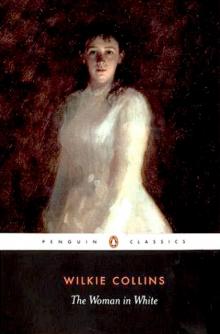 The Woman in White
The Woman in White The Queen of Hearts
The Queen of Hearts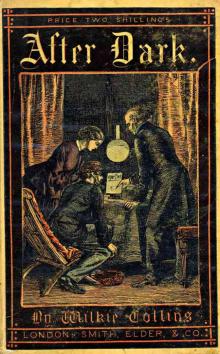 Miss Jeromette and the Clergyman
Miss Jeromette and the Clergyman Man and Wife
Man and Wife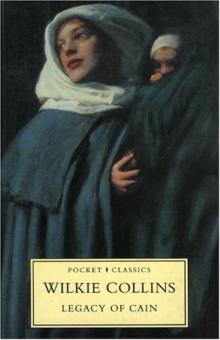 The Legacy of Cain
The Legacy of Cain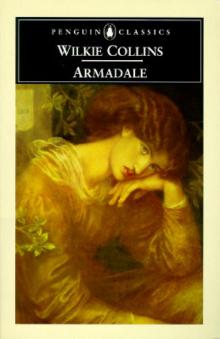 Armadale
Armadale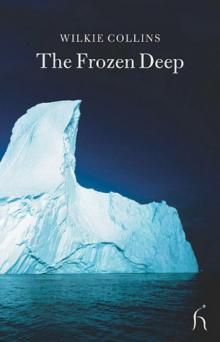 The Frozen Deep
The Frozen Deep John Jago's Ghost or the Dead Alive
John Jago's Ghost or the Dead Alive Poor Miss Finch
Poor Miss Finch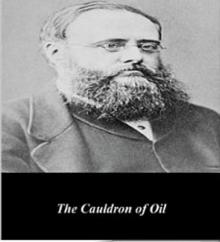 The Cauldron of Oil: A Case Worth Looking At
The Cauldron of Oil: A Case Worth Looking At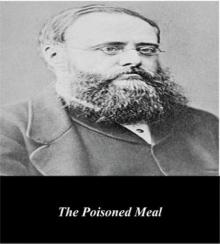 The Poisoned Meal
The Poisoned Meal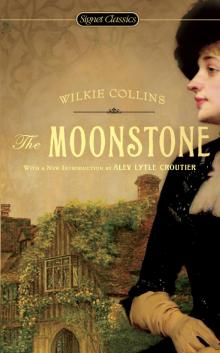 The Moonstone
The Moonstone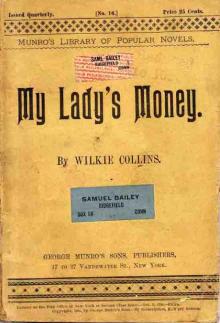 My Lady's Money
My Lady's Money Classic Ghost Stories
Classic Ghost Stories Jezebel's Daughter
Jezebel's Daughter The Devil's Spectacles
The Devil's Spectacles I Say No
I Say No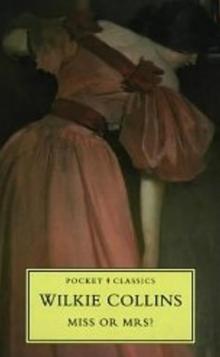 Miss or Mrs.?
Miss or Mrs.?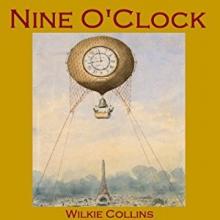 Nine O'Clock
Nine O'Clock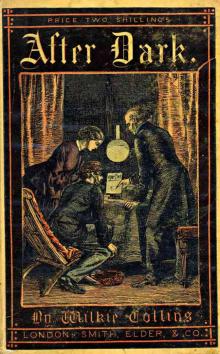 The Lawyer's Story of a Stolen Letter
The Lawyer's Story of a Stolen Letter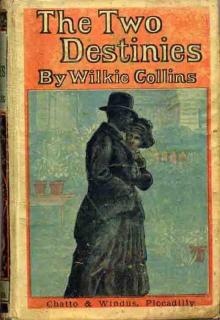 The Two Destinies
The Two Destinies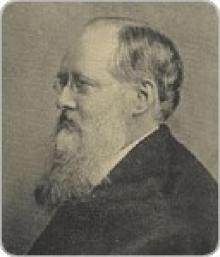 Mr. Percy and the Prophet
Mr. Percy and the Prophet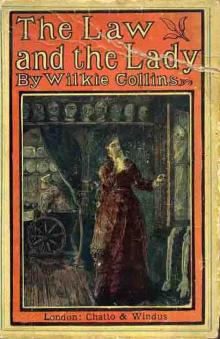 The Law and the Lady
The Law and the Lady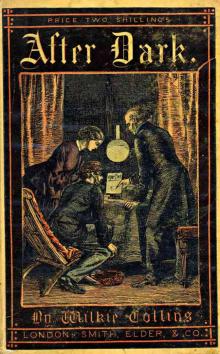 The Nun's Story of Gabriel's Marriage
The Nun's Story of Gabriel's Marriage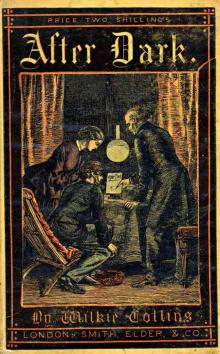 After Dark
After Dark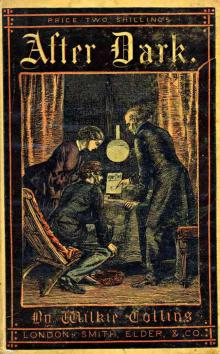 Mr. Captain and the Nymph
Mr. Captain and the Nymph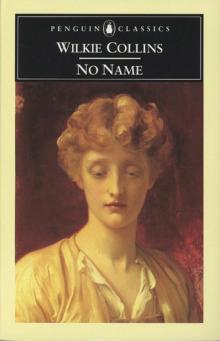 No Name
No Name The Moonstone (Penguin Classics)
The Moonstone (Penguin Classics) Antonina
Antonina Woman in White (Barnes & Noble Classics Series)
Woman in White (Barnes & Noble Classics Series)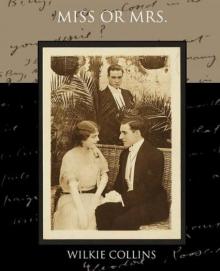 Miss or Mrs
Miss or Mrs The Dead Alive
The Dead Alive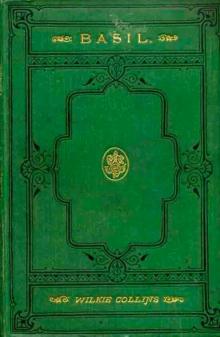 Basil
Basil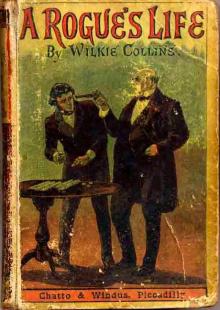 A Rogue's Life
A Rogue's Life The New Magdalen
The New Magdalen Blind Love
Blind Love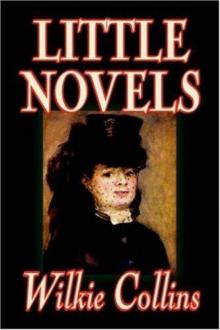 Little Novels
Little Novels The Lazy Tour of Two Idle Apprentices
The Lazy Tour of Two Idle Apprentices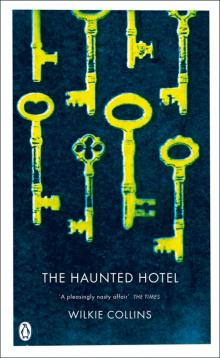 The Haunted Hotel
The Haunted Hotel Hide and Seek
Hide and Seek